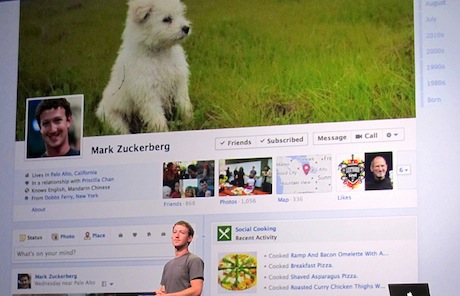When It's Not Your Own...

Successful brands who launch their Facebook Page through an agency will always expect to be guaranteed some 'ownership' of it. It's not uncommon for companies of a certain size to switch agency every few years, simply to embrace a fresh skill-set or on the whim of internal politics. I've been in that position myself and dutifully handed over usernames and passwords for the public entities I controlled to the hungry new whippersnappers.
As someone who acknowledges the value of being "behind the scenes", it would never cross my mind to withhold access to a vehicle I had been paid to build for someone else should they wish to take the wheel from me. Not just for reasons of commercial vanity but more so because you owe it to the users, fans and members of whatever you have created who should never be concerned with conflicts on an administration level.
Eventual ownership of Facebook pages and Twitter accounts is usually made extremely clear in the contract between provider and brand. Even when produced internally, social media policies are commonly deployed to clarify what does and does not belong to the company rather than the staff. With the social media industry booming and thousands of 'experts' selling their wares on a smaller scale in the towns and villages of England, what happens when there simply is no contract or agreement and things fall apart? We'll probably never see a world in which the Red Bull Facebook Page gets shut down or changed to represent another brand as a result of a clash at HQ but I'm aware of it happening all the time, all over the world when smaller brands work with social-media-freelancers who do not offer or sign a tight service and exit agreement.
Back in June this year we saw legal bodies agree with the public that they had a right to decide what they endorsed publically with their name and photograph. The lawsuit focussing on the 'sponsored story' mechanism sold by Facebook cited comments from Facebook chief operating officer Sheryl Sandberg, saying that the value of a 'sponsored story' advertisement was at least twice and up to three times the value of a standard Facebook.com ad without a friend endorsement. While this continues to be debated, it would seem to suggest that if a Facebook Page changed identity overnight and the user was not given the chance to opt-out beforehand, the same argument of mis-endorsement could be argued not between the public and Facebook but between the public and the Page moderator.
On a very small scale I saw this happen on my doorstep this week. The local nightclub (god bless them), hired a promotions team to encourage the party people to visit their establishment above all others. The campaign was relentless with multiple daily updates, begs for befriending and countdowns to the big day. Skip forward a number of months and on the departure of the promotions team, the Facebook Page that the small town hoorays had joined has changed identity overnight, supporting a competing entertainment service. The users have no choice. They are still displayed as 'Liking' the new brand and at no time are they given the opportunity to pledge their allegiance or preference for the new focus. Of course they can leave the page but for most of us, the truth is, we probably don't even recall joining it.
A couple of months ago I wrote on this blog about the importance of protecting your interests and creating a worthy consumer/public movement through offering services similar to Facebook within your own brand boundaries. I argued that Facebook can be a catalyst, but understanding and serving your higher tier ambassadors through your own systems is a long-sighted and wise move for those brand managers who can. Although I'm sure in my home town the customers will vote with their feet when it comes to which venue they support but in doing so, I strongly feel that most will be that tiny bit less inclined to 'Like' in the future and surely that slowly erodes the worth of the social media enterprise.
Any company considering outsourcing their social media should engage with someone well versed in business law before they commit their funds and as the agencies and consultants who serve the industry, we should all consider offering conditions of engagement which benefit the public as much as our own commercial desires. It's in everyone's interests to ensure that when we surround a public space with our logo, we know the risks and benefits associated with that and we should weigh them up against the short term gains. Whilst I'm sure the little issue on my doorstep will be resolved with a round of tequila for everyone, it's worth considering what actions you have prepared should it happen to you.
I should end a rather disheartening post by stating that in the majority, the 'social media gurus' I have met are acutely aware of these risks and not only do their best to avoid them but are generally involved in educating Facebook as a company about the pitfalls of recommending and reselling their platform.
There has never been a better time to reach out to and steer the public through social expression and when those things 'behind the scenes' work, they serve the SME as well as they do the multinational lifestyle brand. Just be sure to know who the true key-holders are before you lease your business to the cyber scene.
Photo (cc) Niall Kennedy



Comments
On Gay Abandon :)
Hi Rebecca,
How tempting it always is to take a sneaky peak when you've been left the keys! I must say, very few clients have ever removed analytics access for us (perhaps more so because we're able to send tips every now and then which might return them to the fold even if they have moved on to internal management or a global agency).
As providers in this space (you and I both), I would encourage us to educate the clients on the risks and to share short, snappy social media policies which they can use not only to control future administrative access but to encourage their staff to be aware of ownership and risk. In the long term, it will benefit the end consumer, even if it means a little bit more admin on our part when entering or leaving a brand project.
It does amaze me that people are generally aware of and sometimes upset about the presence of 'cookies' in their lives, yet hand the whole of their brand space over with an email or sticky note on a desk.
Facebook have some way to go before offering agencies a simple, effective way to safely manage Pages (especially when multiple admins exist). The current format of roles and profiles isn't sufficient. Until it's improved, I guess it's up to us to proactively protect brands knowing we will only ever be custodians of them.
There are instances (especially with GA) where if notified the client will see value in you remaining connected. A shared NDA should ensure the data you see remains educational to you (and perhaps them if you share comment) without being commercially destructive if you move on in the same niche.
:)
sneaky peaks (piques?)
Alex, I totally agree with you - the ability to drive future new business development by insider information on client analytics is a tactic we use as well. My rationalisation (apart from the NDA / Contract) is that we invested in the earlier relationship and having an inside track open to use is pretty much an invitation to use it.
Just don't ab-use it.
I'm writing a book about the Creative Agency of the Future and would love to get your views on how agencies should be managed.
Don't abuse
Hiya,
That sounds facsinating. I'd love to help in any way I could. Drop me a line through Hyperworld Control.
alex
A comment on ownership of marketing assets
Alex, that's a long and well reasoned blog post. Your personal experiences are really helpful.
I run a business development agency and we do some social work for clients. What amazes me is their almost 'gay abandon' with which they share administrator level logins with us.
Yesterday a new client shared her Facebook login and password when we requested administrator access to their page (clearly didn't realise how to grant that to a third party!).
And another still allows us to see their Google Analytics account four months after we stopped working together.... I just sneak a little peek in there from time to time to check they aren't doing better without our input (!). Ethically, yes I should tell them to change it - but the voyeur in me just can't help enjoying a quick glance.
What would you do?
Rebecca Caroe
Founder,
http://www.CreativeAgencySecrets.com